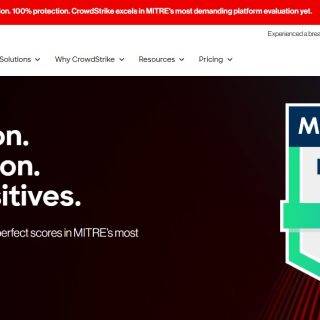
Cybersecurity’s Fatal Flaw: Ignoring Payload Protection
In the dynamic and ever-evolving landscape of cybersecurity, businesses and individuals alike are locked in a perpetual battle against increasingly sophisticated cyberattacks. For years, conventional defense strategies have concentrated on vulnerabilities—attempting to block the delivery of malicious payloads at various stages of the attack cycle. Yet, despite these efforts, breaches continue to escalate, as attackers employ innovative delivery mechanisms to bypass defenses.
This challenge was recently underscored by a high-profile cybersecurity incident involving Starbucks, where a supply chain attack exploited third-party vulnerabilities. The attackers didn’t just identify weak points in delivery mechanisms; they ensured their payloads could wreak havoc once they penetrated the target environment.
This is where Xcitium emerges as the game-changer in cybersecurity. By focusing on protecting systems even after a payload is delivered, Xcitium shifts the paradigm. Their patented Kernel Level API Virtualization and Kernel Level Attack Surface Reduction (KLASR) technologies provide an unparalleled layer of protection against both known and unknown threats, ensuring that payloads—even when delivered—cannot execute their malicious intent.
The Starbucks Incident: A Wake-Up Call
The Starbucks cybersecurity breach serves as a cautionary tale for the industry. Attackers infiltrated the company’s systems through its supply chain, exploiting vulnerabilities in a trusted third-party vendor. While Starbucks’ security defenses aimed to block traditional attack vectors, they were ultimately ineffective in preventing the malicious payload from being delivered and executed.
This incident highlighted a critical flaw in traditional defenses: focusing solely on blocking delivery mechanisms is not enough. Even with sophisticated filters, intrusion detection systems, and regular patching, some threats will inevitably evade these safeguards.
The Starbucks attack underscores the need for a paradigm shift—moving beyond blocking vulnerabilities to ensuring payloads cannot execute, regardless of how they enter the system.
The Limitations of Traditional Cybersecurity Approaches
Traditional cybersecurity strategies focus heavily on the early stages of the Cyber Kill Chain, which includes:
- Reconnaissance: Identifying potential threats using intelligence and monitoring.
- Weaponization: Detecting and mitigating malicious payload creation.
- Delivery: Blocking phishing emails, malicious links, and other payload carriers.
- Exploitation: Preventing attacks through vulnerability patches and intrusion detection systems.
While these measures are essential, they suffer from a fundamental limitation: they rely on anticipating or recognizing the attacker’s methods. This dependency leaves systems vulnerable to:
- Unknown Threats: Attackers continuously innovate, rendering traditional defenses insufficient against new or sophisticated techniques.
- Zero-Day Exploits: Even a slight delay in patching vulnerabilities provides an open window for exploitation.
- Supply Chain Attacks: Trusted third parties often become weak links, introducing unrecognized threats directly into secure environments.
In the Starbucks incident, attackers capitalized on these weaknesses. They bypassed detection systems and delivered a malicious payload that exploited trusted access points in Starbucks’ supply chain.
Xcitium’s Approach: Neutralizing Payloads, Not Just Blocking Delivery
Xcitium takes a fundamentally different approach to cybersecurity. Rather than relying solely on blocking delivery mechanisms, Xcitium ensures that even if a payload penetrates initial defenses, it cannot execute its malicious objectives. This approach is made possible through Kernel Level API Virtualization and Kernel Level Attack Surface Reduction (KLASR).
1. Kernel Level API Virtualization
Xcitium’s patented technology creates a virtualized environment at the kernel level, isolating the operating system from untrusted applications. By doing so:
- Malicious payloads are effectively neutralized, unable to interact with critical OS functions.
- Even unknown or zero-day threats are contained, as they cannot execute harmful actions within the system.
2. Kernel Level Attack Surface Reduction (KLASR)
KLASR further enhances protection by introducing a virtualization layer between unknown executables and the system’s core kernel functions. This layer virtualizes critical components, such as:
- File Systems
- Registry
- Kernel Objects
- Services
- DCOM/RPC
By reducing the attack surface, KLASR minimizes opportunities for malicious payloads to exploit system weaknesses, ensuring they cannot compromise critical functions even if delivered.
Why Xcitium Stands Apart
1. Protection Against Unknown Threats
Traditional methods rely on identifying and patching vulnerabilities—a process inherently reactive and incomplete. Xcitium’s virtualization-based approach proactively isolates threats, providing resilience against both known and unknown attacks.
2. Defense Beyond the Perimeter
While most defenses falter once a payload enters the system, Xcitium ensures that systems remain protected at their core. This layered approach delivers robust defense-in-depth, neutralizing threats even in the event of a breach.
3. Reduced Dependency on Patching
Constantly patching vulnerabilities is resource-intensive and offers only temporary security. Xcitium’s proactive defense significantly reduces this dependency, providing organizations with a more stable and secure environment.
The Only Viable Solution to Supply Chain Attacks
In the wake of incidents like the Starbucks breach, businesses must recognize the limitations of traditional cybersecurity measures. Supply chain attacks will continue to exploit vulnerabilities in trusted third parties, bypassing conventional defenses.
Xcitium’s patented technologies offer the only viable solution to this growing threat. By neutralizing payloads through Kernel Level API Virtualization and KLASR, Xcitium ensures comprehensive protection against even the most sophisticated supply chain attacks.
In today’s cyber threat landscape, it’s no longer enough to focus on blocking vulnerabilities. The battle is shifting to protecting against payloads—and Xcitium is leading the charge.
Secure your systems, protect your business, and stay ahead of evolving threats. Discover the Xcitium advantage today.



